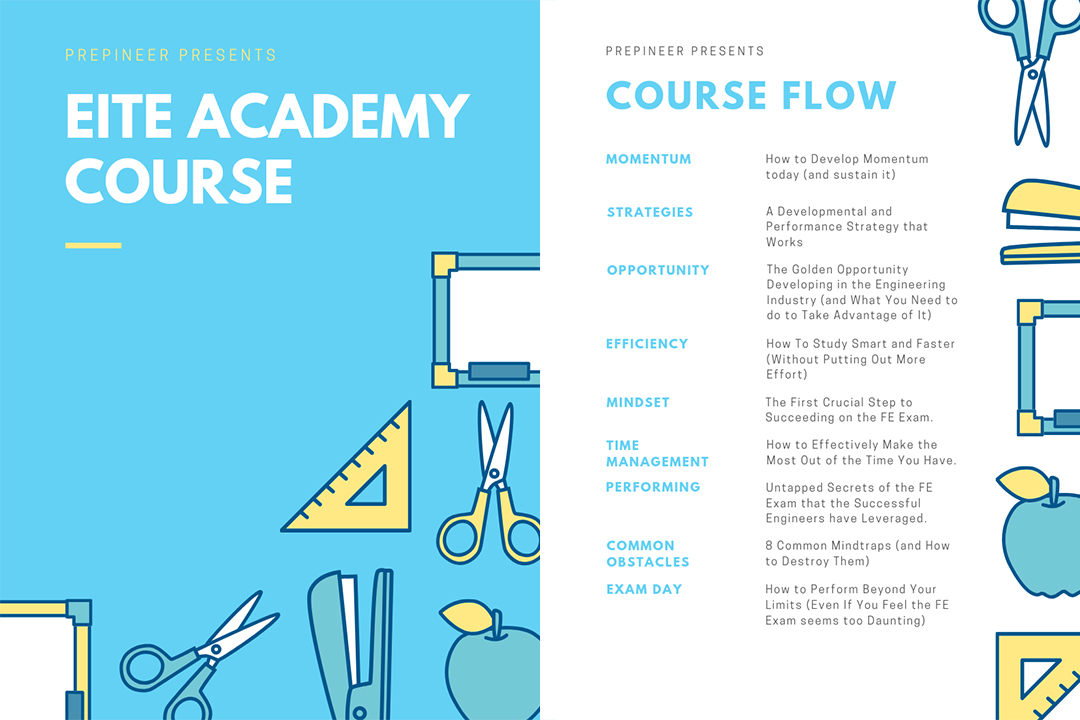Every week we have engineers from around the world ready to get after taking the FE Exam in a pursuit of becoming a licensed Professional Engineer.
Some of these individuals are deep in to their careers, hitting the bureaucratic red tape that tends to reveal itself when one attempts to make moves in bettering their professional position.
Others are fresh out of school, applying for jobs all over the place and realizing that one of the glaring requirements is having an EIT or EI.
And every situation in between.
There has never been a time when passing the FE Exam has been more important in how the market values us as engineers.
But when are you actually eligible to take the FE Exam?
This is a common question we get coming in to the Prepineer headquarters, so let’s get some clarity around it.
Eligibility requirements are not set uniformly across the board by the NCEES, but rather, by each engineering Board in their respective state.
With this, when one is eligible to sit for the exam in Tennessee may differ to when one can sit for the exam in California.
You can review your individual state’s eligibility requirements here, but please note, they often change so it is best to double check directly with your state board of engineer’s website to confirm the latest statutes.
In most cases, however, those who are at minimum in the final year of an ABET (Accreditation Board for Engineering and Technology) accredited Engineering program (or graduated from) are eligible to take the exam.
But what if you don’t have an ABET accredited degree?
What if you don’t have a degree at all?
Or your degree is from a university outside the states?
Is there any way that you can still gain eligibility?
The short answer is YES!
Now the actual path to eligibility in these cases will be unique to the situation, which again, I will refer you to this page to hone in on the specifics of your particular state.
However, there are often multiple paths to eligibility for the FE Exam defined by each state.
The ABET accredited degree is the creme de la creme when it comes to gaining eligibility, but it’s not the only route.
Let’s take Alabama as an example, they have established a nice flowchart outlining the various paths to eligibility:
As you can see, everything starts from an ABET accredited degree and adds on from there.
If one has an unaccredited, TAC or unrelated science degree (plus an ABET MS in the latter scenarios), then an additional 2 years of progressive engineering experience would be required.
Jumping over to Texas as another example of how each state defines unique minimum eligibility requirements, section 133.65 [EXAMINATION ON THE FUNDAMENTALS OF ENGINEERING] in the TBPELS Acts and Rules states the following:
In Texas, all EAC/ABET, ETAC/ABET, engineering related and non-engineering related programs can lead one to eligibility, albeit, with those last two scenarios having some additional verification requirements attached.
We at Prepineer obviously believe that the sooner you can take the exam post-academia, the better – but the truth is, most of us don’t even become aware of the need until we are too far removed.
However, we have worked with many who were years out of college (35+ in some instances) and were able to go on become Professonal Engineers – you can do the same.
Prepineer is here to help you get moving forward with clarity and confidence.





